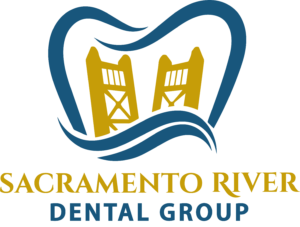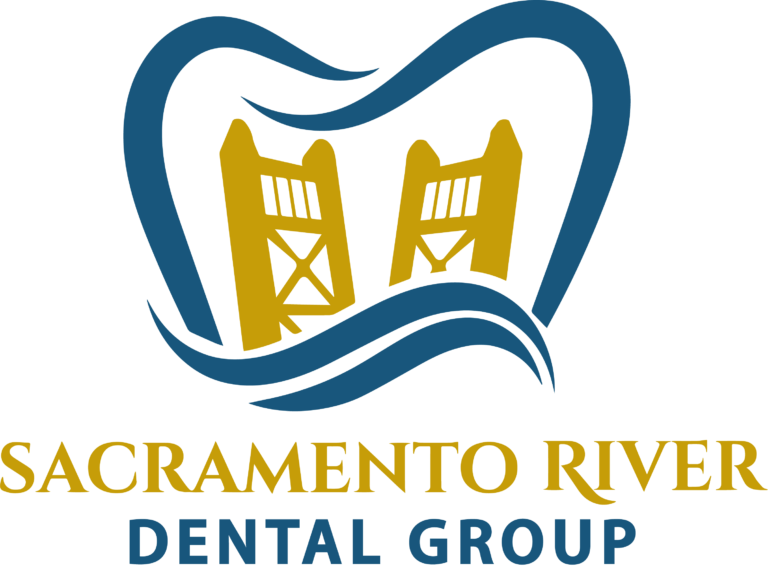Understanding Why a Cracked Tooth is Considered a Dental Emergency
At Sacramento River Dental Group in Sacramento, CA, we recognize that dental emergencies require immediate attention, particularly regarding a cracked tooth. This dental issue can lead to severe pain, potential complications, and irreversible damage if not promptly treated. In this blog post, we explore why a cracked tooth constitutes a dental emergency and why you should seek urgent treatment. Is really a Cracked Tooth a Dental Emergency?
Understanding Cracked Teeth
What Causes a Tooth to Crack?
Several factors can lead to a cracked tooth, each necessitating immediate care:
Trauma: Accidents, sports injuries, or falls can cause sudden cracks in your teeth. These unexpected incidents often result in significant damage that requires prompt attention to prevent further complications.
Chewing on Hard Objects: Biting down on hard items like ice, pens, or other rigid objects can lead to tooth fractures. Regularly chewing on such objects increases the risk of cracking a tooth, making urgent treatment for a cracked tooth essential.
Tooth Decay: Unattended cavities can weaken the tooth structure, making it more susceptible to cracking. When decay compromises the integrity of the tooth, even minor pressure can cause it to crack.
Temperature Changes: Consuming hot food and cold drinks can stress the tooth due to extreme temperature changes, causing cracks. This thermal stress can gradually lead to significant tooth damage.
Age: As we age, our teeth experience wear and tear, making them more vulnerable to cracks. The cumulative effects of years of use can weaken teeth, increasing the likelihood of cracks.
What are the Warning Signs of a Cracked Tooth?
Recognizing the signs of a cracked tooth is crucial for seeking timely treatment. Be aware of the following symptoms:
- Pain when Biting: Sharp pain while chewing or biting is a common sign of a cracked tooth, indicating the need for immediate attention. This pain typically occurs because the crack allows movement of the segments of the tooth, irritating the pulp inside.
- Sensitivity to Temperature: Increased sensitivity to hot or cold substances may suggest a cracked tooth. This sensitivity occurs when the crack exposes the dentin, leading to heightened responses to temperature changes.
- Intermittent Pain: Pain that comes and goes, rather than being constant, can also be a symptom of a cracked tooth. This intermittent pain can be triggered by specific actions, such as chewing or exposure to certain temperatures.
- Swelling and Gum Sensitivity: Swollen gums around the affected tooth may accompany the pain. This swelling is a response to inflammation or infection that can develop from the cracked tooth.
Why is a Cracked Tooth an Emergency?
Preventing Further Damage
A cracked tooth can deteriorate if left untreated. What starts as a minor crack can escalate, leading to significant damage. Addressing the issue promptly can prevent the need for more invasive and expensive procedures, highlighting the importance of fixing a cracked tooth. For instance, a minor crack can progress to a split tooth or a fractured root if not treated in time.
Alleviating Pain
The pain from a cracked tooth can be intense and disruptive, affecting your ability to eat, sleep, or focus. Immediate dental care can provide much-needed relief from this discomfort. Untreated, the pain can become chronic and more severe, making daily activities difficult.
Avoiding Infection
A crack in the tooth can expose the inner pulp and nerves to bacteria, increasing the risk of infection. This can lead to abscesses or more severe complications. Early treatment of the cracked tooth can prevent the infection from spreading, underscoring the risks of not treating a cracked tooth. Infections from cracked teeth can lead to systemic issues, affecting overall health.
Maintaining Aesthetics
A cracked tooth, especially in a visible area, can impact your smile and self-confidence. Prompt dental care can help preserve the aesthetics of your smile, showing the urgency of cracked tooth repair. Cosmetic concerns are significant, as untreated cracks can lead to discoloration and further visible damage.
What to Do for a Cracked Tooth
If you experience a cracked tooth, follow these steps until you can see a dentist:
- Rinse Your Mouth. Clean your mouth with warm water to remove any debris and reduce the risk of infection.
- Apply Cold Compress. Reduce swelling by applying a cold compress to the outside of your mouth.
- Avoid Chewing on the Affected Side. To prevent further damage, avoid chewing on the side of the cracked tooth.
- Take Pain Relievers. Use over-the-counter pain relievers to manage discomfort.
- Seek Immediate Dental Care. Contact Sacramento River Dental Group for urgent treatment of your cracked tooth.
How Sacramento River Dental Group Can Help
At Sacramento River Dental Group, we specialize in providing premium dental care, including emergency services. If you experience a cracked tooth, our experienced dentists are ready to provide immediate assistance.
Our Services
Emergency Appointments: We prioritize dental emergencies and aim to see you as soon as possible to address your cracked tooth. Our team understands the urgency and strives to provide prompt care to alleviate your pain and prevent further damage.
X-rays and Evaluation: We use advanced technology to assess the extent of the crack and develop a tailored treatment plan. Our state-of-the-art imaging techniques ensure accurate diagnosis and effective treatment strategies.
Tooth Repair: Depending on the severity of the crack, we may recommend treatments such as dental bonding, crowns, or root canals to restore the tooth’s function and appearance. Our restorative procedures are designed to provide durable and aesthetically pleasing results.
Preventive Care: We also offer guidance on preventing future tooth cracks, emphasizing the importance of good oral hygiene and avoiding habits that can lead to tooth damage. Education on preventive measures is a key aspect of our approach to comprehensive dental care.
When to Go to the Dentist for a Cracked Tooth
If you suspect you have a cracked tooth, it is crucial to seek immediate dental care. Delaying treatment can lead to more severe complications, including increased pain, infection, and more extensive damage to the tooth. Contact Sacramento River Dental Group promptly to ensure you receive the best care for your dental emergency.
Complications of Untreated Cracked Tooth
Ignoring a cracked tooth can result in several complications. These include persistent pain, heightened sensitivity, increased risk of infection, and potential tooth loss. Timely intervention is essential to prevent these issues and maintain your dental health. Untreated cracks can also lead to the need for more invasive procedures, such as extractions and dental implants.
How to Handle a Cracked Tooth
If you experience a cracked tooth, follow these steps until you can see a dentist:
- Rinse Your Mouth. Clean your mouth with warm water to remove any debris and reduce the risk of infection.
- Apply Cold Compress. Reduce swelling by applying a cold compress to the outside of your mouth.
- Avoid Chewing on the Affected Side. To prevent further damage, avoid chewing on the side of the cracked tooth.
- Take Pain Relievers. Use over-the-counter pain relievers to manage discomfort.
- Seek Immediate Dental Care. Contact Sacramento River Dental Group for urgent treatment of your cracked tooth.
FAQ:
Should I go to the ER for a Cracked Tooth?
Typically, you do not need to visit the ER for a cracked tooth unless you are experiencing severe pain that cannot be managed with over-the-counter pain medications, significant bleeding, or signs of infection such as swelling or fever. In most cases, it is best to contact your dentist immediately for urgent treatment. Emergency dental care providers like Sacramento River Dental Group are equipped to handle such situations promptly. If your dentist is unavailable and the pain or other symptoms are severe, visiting an emergency room can provide temporary relief and advice until you can see your dentist.
How Long Can You Leave a Cracked Tooth?
It is not advisable to leave a cracked tooth untreated for long. Even minor cracks can lead to more serious complications if not addressed promptly. Delaying treatment can result in increased pain, further cracking, infection, and potentially more invasive and costly procedures in the future. Ideally, you should seek dental care as soon as you notice the symptoms of a cracked tooth. Immediate attention can prevent further damage and ensure a more straightforward repair.
What is the Protocol for a Cracked Tooth?
The protocol for handling a cracked tooth typically involves the following steps:
Initial Care:
- Rinse your mouth with warm water to clean the area.
- Apply a cold compress to the outside of your mouth to reduce swelling.
- Avoid chewing on the affected side to prevent further damage.
- Take over-the-counter pain relievers to manage pain.
Seek Immediate Dental Care:
- Contact your dentist as soon as possible to schedule an emergency appointment.
- If the dentist is unavailable and the pain is severe, consider visiting an emergency room for temporary relief.
Dental Evaluation:
- Your dentist will conduct a thorough examination, which may include X-rays to determine the extent of the crack.
- Based on the assessment, the dentist will recommend appropriate treatment, such as dental bonding, crowns, or root canals.
What is the Emergency Treatment for a Broken Tooth?
Emergency treatment for a broken tooth involves the following:
Pain Management:
- Use over-the-counter pain relievers like ibuprofen to reduce pain and inflammation.
- Apply a cold compress to the affected area to minimize swelling.
Immediate Care:
- Rinse your mouth with warm water to clean the area and reduce the risk of infection.
- If there are any broken pieces of the tooth, try to save them and bring them to the dentist.
Dental Treatment:
- The dentist will evaluate the extent of the damage through an examination and X-rays.
- Treatment options may include dental bonding, where a tooth-colored resin is applied to the broken area, crowns to cap and protect the tooth, or root canals if the tooth’s pulp is damaged.
- In severe cases, tooth extraction may be necessary, followed by replacement options like dental implants or bridges.
In summary, for a cracked tooth, seek immediate dental care rather than going to the ER unless the situation is extreme. Do not leave a cracked tooth untreated, as it can lead to more serious issues. Follow the appropriate protocol for initial care and consult your dentist promptly. Emergency treatment may involve pain management, cleaning, and professional dental repairs.
At Sacramento River Dental Group, your dental health is our priority. Our experienced team offers comprehensive emergency dental services, including detailed evaluations with advanced technology, personalized treatment plans, and expert repairs using dental bonding, crowns, or root canals.
If you suspect you have a cracked tooth, don’t wait! Our team is dedicated to providing the highest quality emergency dental care to address your needs effectively and promptly.
Contact us or visit our website to book an emergency appointment now. Your smile deserves the best – trust Sacramento River Dental Group to restore and protect it.


